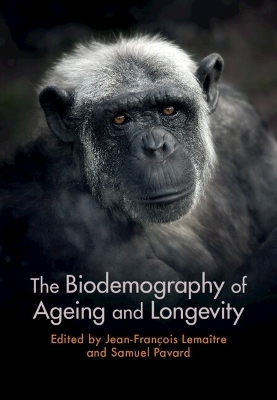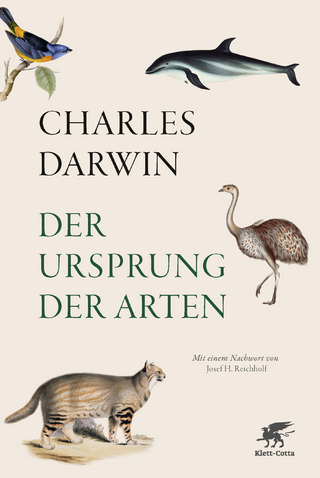
The Biodemography of Ageing and Longevity
Cambridge University Press (Verlag)
978-1-316-51919-6 (ISBN)
- Noch nicht erschienen (ca. August 2025)
- Versandkostenfrei innerhalb Deutschlands
- Auch auf Rechnung
- Verfügbarkeit in der Filiale vor Ort prüfen
- Artikel merken
Why and how we age are probably two of science's oldest questions, echoing personal beliefs and concerns about our own finitude. From the earliest musings of ancient philosophers to recent pharmacological trials aimed at slowing ageing and prolonging longevity, these questions have fascinated scientists across time and fields of research. Taking advantage of the natural diversity of ageing trajectories, within and across species, this interdisciplinary volume provides a comprehensive view of the recent advances in ageing and longevity through a biodemographic approach. It includes the key facts, theories, ongoing fields of investigation, big questions, and new avenues for research in ageing and longevity, as well as considerations on how extending longevity integrates into the social and environmental challenges that our society faces. This is a useful resource for students and researchers curious to unravel the mysteries of longevity and ageing, from their origins to their consequences, across species, space and time.
Jean-François Lemaître is a Research Director at the French National Centre for Scientific Research (CNRS) based at the Claude Bernard Lyon 1 University. He is an evolutionary biologist who studies ageing in wild mammals through a multidisciplinary approach combing evolutionary demography, ecology and ecophysiology. His research currently focuses on identifying factors shaping the diversity of reproductive ageing patterns observed across mammal species; females and males. Samuel Pavard is a Professor of Eco-anthropology at the National Museum of Natural History in Paris. He is a demographer with broad interests in understanding the biological, environmental, cultural and social determinants of ageing and longevity in humans and, in particular, investigating the joint evolution of actuarial and reproductive senescence with cognitive and social capabilities in our species. His is currently investigates the role played by evolutionary trade-offs between mortality components in shaping mortality at old ages, in mammals in general and in humans in particular.
Contents; List of contributors; Foreword Steve Horvath; Acknowledgments; 1. The eternal youth of ageing research Jean-François Lemaître and Samuel Pavard; 2. Theories of ageing across ages Thomas B. L. Kirkwood; 3. The diversity of longevity metrics: statistical considerations, potential biases and biological implications Victor Ronget, Gilles Maurer and Sarah Cubaynes; 4. The meaning of 'exceptional longevity': a critical reappraisal Jean-Michel Gaillard and Nigel Gilles Yoccoz; 5. The inevitability of senescence Annette Baudisch; 6. The untapped potential of zoo and aquarium data for the comparative biology of ageing Morgane Tidière, Johanna Staerk, Michael J. Adkesson, Dalia A. Conde, Fernando Colchero; 7. Perspectives in comparative biology of ageing Jean-François Lemaître, Jean-Michel Gaillard, Samuel Pavard, François Criscuolo and Fabrice Bertile; 8. An integrative approach to understanding variation in the form, pattern, and pace of ageing Pat Monaghan and Jelle Boonekamp; 9. Sex differences in lifespan, ageing and health in the living world. What can we learn from evolutionary biology? Jean-François Lemaître, Jean-Michel Gaillard, Dominique Pontier, Hugo Cayuela, Cristina Vieira and Gabriel A. Marais; 10. Evolution of human reproduction, ageing and longevity Samuel Pavard and Michael Gurven; 11. Lifespan and mortality in Hunter-gatherers and other subsistence populations Michael D. Gurven; 12. Longevity in modern populations Nadine Ouellette and Julie Choquette; 13. Health transition and population ageing: challenges for the global south Géraldine Duthé, Lucie Vanhoutte, Soumaila Ouedraogo and Gilles Pison; 14. Limit of human longevity: historical perspectives and new metric Carlo Giovanni Camarda and Jean-Marie Robine; 15. Mortality modelling at the oldest ages in human populations: a brief overview Linh Hoang Khanh Dang, Nadine Ouellette, Carlo Giovanni Camarda, and France Meslé; 16. Lessons from exceptionally long-lived individuals and long-living families: implications for medical research on ageing and age-related diseases Larissa Smulders and Joris Deelen; 17. Human populations with extreme longevities Gianni Pes and Michel Poulain; 18. Socio-economic consequences of increased longevity in contemporary populations Miguel Saìnchez-Romero and Alexia Prskawetz; Index.
| Erscheint lt. Verlag | 1.8.2025 |
|---|---|
| Zusatzinfo | Worked examples or Exercises |
| Verlagsort | Cambridge |
| Sprache | englisch |
| Themenwelt | Naturwissenschaften ► Biologie ► Evolution |
| ISBN-10 | 1-316-51919-8 / 1316519198 |
| ISBN-13 | 978-1-316-51919-6 / 9781316519196 |
| Zustand | Neuware |
| Haben Sie eine Frage zum Produkt? |
aus dem Bereich


